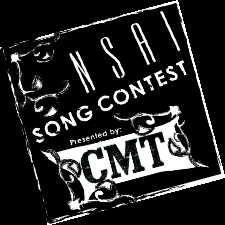
Editor’s Note: At NSAI not only do we fight diligently for the rights of songwriters through our legislative efforts, but we have signature services that encourage songwriters to enhance their craft and knowledge of the music business. One of the services members benefit from is the Nashville workshops.
Every Thursday night, members have the opportunity to attend seminars that range from the craft of songwriting to how to successfully navigate the business portion of their musical journey. At one such teaching night, songwriter George Teren (“When I Get Where I’m Goin’” and “Ladies Love Country Boys”) shared his thoughts on the basics of co-writing. – Debra Gordon
If you look at the writer credits on records these days, you will rarely see songs listing just one writer. It is most common to see two or three writers listed, and on some records, particularly in the hip-hop and pop world, four or more writers are not unusual. While I think it is important for all writers, and especially developing writers, to write by themselves, co-writing is certainly a way of life in the songwriting world.
To my mind, there are no real tricks to co-writing; it mostly involves just plain common sense. There are, however, some guidelines to co-writing that can make it an enjoyable and productive experience.
When choosing a co-writer, look for someone who complements you. If you are stronger musically, look for someone who is lyric-oriented. If you have pop sensibilities but are writing for the country market, find someone who can pull you country. If you’re slow and meticulous, you’re probably going to be frustrated by someone who blows through a song. Look for people whose songs you like. It’s not a bad idea to write “up,” in other words with someone further up the song-writing food chain than you, but if you don’t like what they do it may not be a good experience.
Be ready to compromise. Check your ego at the door. If you are really attached to an idea and have a song started and are not willing to change it, don’t bring it in to a co-write. Ideas are going to morph, grooves are going to change, and you have to have an open mind. That being said, it doesn’t mean that you can’t push for something you like or dig in your heels if you think a song is going in the wrong direction. Mutual respect is essential. Do your best to not settle. My rule of thumb is that if I have line that I like that my co-writer isn’t happy with, or if he likes something that I don’t like, we keep looking for a line that satisfies us both. The beauty of co-writing is that if I get stuck I have someone else there to move the ball forward.
Follow the basic process. I would never say that there is any right or wrong way to write a song. I can only tell you what, after having written hundreds of songs, seems to work best for me. That means starting with a concept, a title. My co-writer and I will throw titles back and forth, looking for something that seems fresh, interesting, and that has “legs”—enough to it to write a chorus and several verses about. It’s not unusual to spend several hours just hunting for a good idea. If we’re going to spend the better part of day writing the song, I want to make sure we have something to hang our hat on. I’ve found out the hard way that even if you write the fire out of a mediocre idea, you’re most likely still going to have a mediocre song.
Once we’ve agreed on an idea, my co-writer and I will discuss how to write the idea, what the best angle is, and what artists might sing this song. In a sense we map out the song. From there we actually start writing, usually writing the chorus first, then the verses. Mapping the song also gives you a chance to make sure you and your co-writer are on the same page. If he’s pushing an idea or an angle and you’re not feeling it, or vice-versa, it’s not too late to look for something else. If you do all this “pre-writing,” it often makes the actual writing of songs easier.
Always remember, if there is one rule above all to follow, it is this: do unto your co-writers what you would have your co-writer do unto you.
By: George Teren
NSAI SAVE THE DATE:
• NSAI Spring Training 2012 (March 30-31, 2012) | Learn from the best in the business at this two-day intensive seminar featuring powerhouse panels, educational seminars and a chance to pitch YOUR song to the music publisher of YOUR choice!
• 20th Annual Tin Pan South (March 27-31, 2012) | Mark your calendar and make your way to Nashville for the world’s largest songwriters festival!
• Decide today to invest in yourself and your music. Visit the NSAI website to join and get your music heard!
Visit nashvillesongwriters.com to jump-start your songwriting career!





Be the first to comment